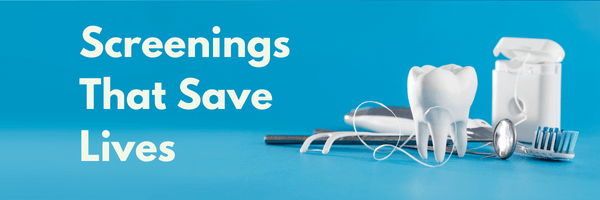
Feel Like Quitting Your Dental Job? Consider This First.
Posted August 08, 2022
Maybe you’ve just started a new dental job or have been there a while. However, now that you’re several weeks or years in, you start to feel differently about your job. Maybe it’s your role, responsibilities, colleagues, or even the working environment, but it’s just not working out as you’d hoped.
Do you grin and bear it, or do you quit and begin the job-hunting process all over again? Here are some things to consider before making that call.
Keen to Quit Your New Dental Job? You Aren’t Alone.
If you’re feeling guilty about your sudden change of heart, you may be relieved to learn that, in a Harris Interactive survey, six in 10 US workers felt their new jobs differed from what they expected from their interviews. Employee morale, job responsibilities, work hours, and their supervisor’s personality were the top aspects that differed from their original expectations. Additional areas included their salary and career advancement opportunities.
Gallup’s Employee Engagement Survey, which gathered feedback from a random sample of 14, 705 U.S. employees (both full- and part-time), showed a drop in employee involvement and enthusiasm about work. The survey revealed that healthcare workers’ engagement levels had seen the most significant decline among working professionals between early 2021 and early 2022.
Our 2022 Dental Job Satisfaction poll reported a large percentage of respondents actively seeking and applying for new jobs this year because of wanting to earn higher pay, feel more appreciated, or escape a toxic work environment.
So, yes, it’s not just you.
That said, quitting a new job is unavoidably risky and disruptive, so it’s good to look before you leap to understand all the potential repercussions. Knowing you’ve done all you can to make the position work can also help you leave confidently and be at peace with your final decision.
Top Signs It’s Likely Time to Resign
A February 2022 Harvard Business Review (HBR) article identified the following signs indicating it’s time to move on in your dental career:
You feel your workplace is harmful to your physical or emotional well-being
There are a few non-negotiable situations you should never have to tolerate at your workplace. This includes sexual harassment, bullying, or any form of abuse or discrimination in the workplace.
Reporting and sharing your experiences and concerns with an appropriate manager or HR is essential. If escalating these issues brings about little change or action, you are well within your rights to give notice of your resignation and walk out the front door.
Exhaustion and burnout are also red flags that something’s amiss at work. If you feel you are consistently compromising your mental or physical health to work unrealistic hours, beyond your capacity or scope of experience, for example, with little acknowledgment, support, or reward, that’s not ideal.
Keep in mind, however, that the first few months of any new job are a steep learning curve. You’re adjusting to unique systems, processes, clients, colleagues, and practice culture and are likely to feel stretched and overwhelmed.
Your coping behavior has changed for the worse
We all have coping mechanisms for stressful days – some good and some rather damaging or unproductive. As the HBR blog highlights, if you have started behaving unethically, inappropriately, and in contradiction to your core values to cope with a toxic work environment – even worse, because you have been asked to – it’s time to cut your losses and walk out the door. Putting your professional and personal integrity at risk can have more far-reaching consequences than being unemployed for a period.
How Soon is Too Soon to Quit Your New Dental Job?
Dreading your new job is not a great feeling, we understand. There will always be kinks and bumps to work out in the first few months of any new role. It takes between three to nine months to settle into a new position and even longer to feel truly productive.
If you’re willing to give the new job that time, then spend it finding out if there is anything you can do to improve the situation.
For example:
- Are you burdening yourself with an excessive workload because you’re keen to show your work ethic or aren’t sure how to push back against unreasonable requests?
- Did your training and onboarding leave knowledge gaps causing undue stress and lack of ease in your daily workflow?
- You might need more time to establish your competence or work on gaining your manager’s trust before being given more autonomy and opportunities.
Set aside time to list concerns or challenges you have with the job. Then, list potential solutions and share them in a meeting with HR or your manager to discuss the next steps.
You may find that your concerns fall on unsympathetic ears, and nothing can be done. Alternatively, you and your manager may have a productive conversation that sets a course of action for resolving some of the issues you are experiencing.
If You Do Quit Your Job, Leave Prepared and Leave Well
You won’t know how long it will take to find a new job, so if you don’t have financial savings or additional support to get you through this indefinite period, you may need to stick it out in your current role while you go for more interviews.
Explaining your short job stint to a future employer or HR is another consequence of leaving a new dental job sooner than anticipated. Prospective employers can interpret this as unreliable or noncommittal behavior and may see you as a job hopper or flight risk. Be prepared to explain to a hiring manager your reasons for leaving so quickly, as they will likely raise it in your job interview.
There are also bad ways to quit that could have serious long-term effects. According to an SHRM article, impulsive quitting or bridge-burning are the two worst ways to resign. Leaving your current employer in the lurch or trying to damage the practice’s reputation through verbal assault or going on a social media slur campaign will only taint your standing in the dental industry.
Be careful to give your notice as respectfully as possible. Resign in person, explain why you are leaving, and work in your stipulated notice period. You’ll go with a better reference and with professional relationships intact.
So, Is It Time to Move On?
It’s likely time to move on from a new dental job if it’s apparent that the culture, workload, and overall expectations don’t feel sustainable. Despite your attempts to salvage a bad situation, it’s evident that nothing will come of it.
If you still feel a need to migrate to greener pastures, DentalPost can make that transition easier for you. We’ve assisted thousands of candidates like you in finding a job within a company culture where they can thrive.
DentalPost’s Free Job Seeker Assessments
Our DISC assessment is one of many job seeker assessments you can access through your free DentalPost Job Seeker account. It narrows down your core traits and communication strengths and weaknesses, helping you better understand your preferred communication and work style.
Are you a Motivator, a Persuader, a Driver, an Inventor, a Connector, or one of the other personality types? Complete the assessment to find out.
Completing our free Workplace Culture assessment will help confirm what type of work conditions suit you best. Discover the social environment, office type, and work pace that make you come alive and do your best work.
Ready for your next career move? Create your free DentalPost Job Seeker account today to build a better future.
We connect and educate more than 900,000 job seekers in the U.S. and Canada to build better places to work through teams that excel.




.png)




.png)
